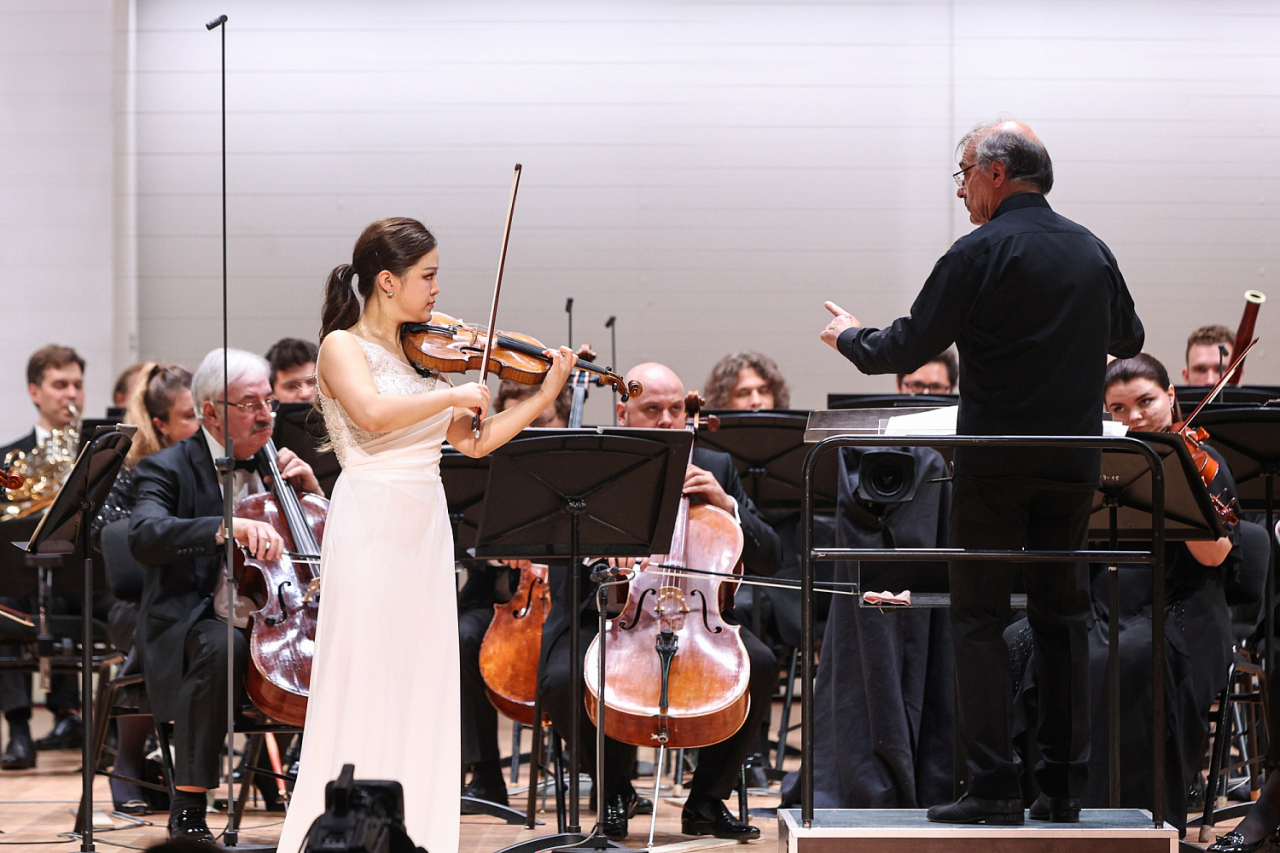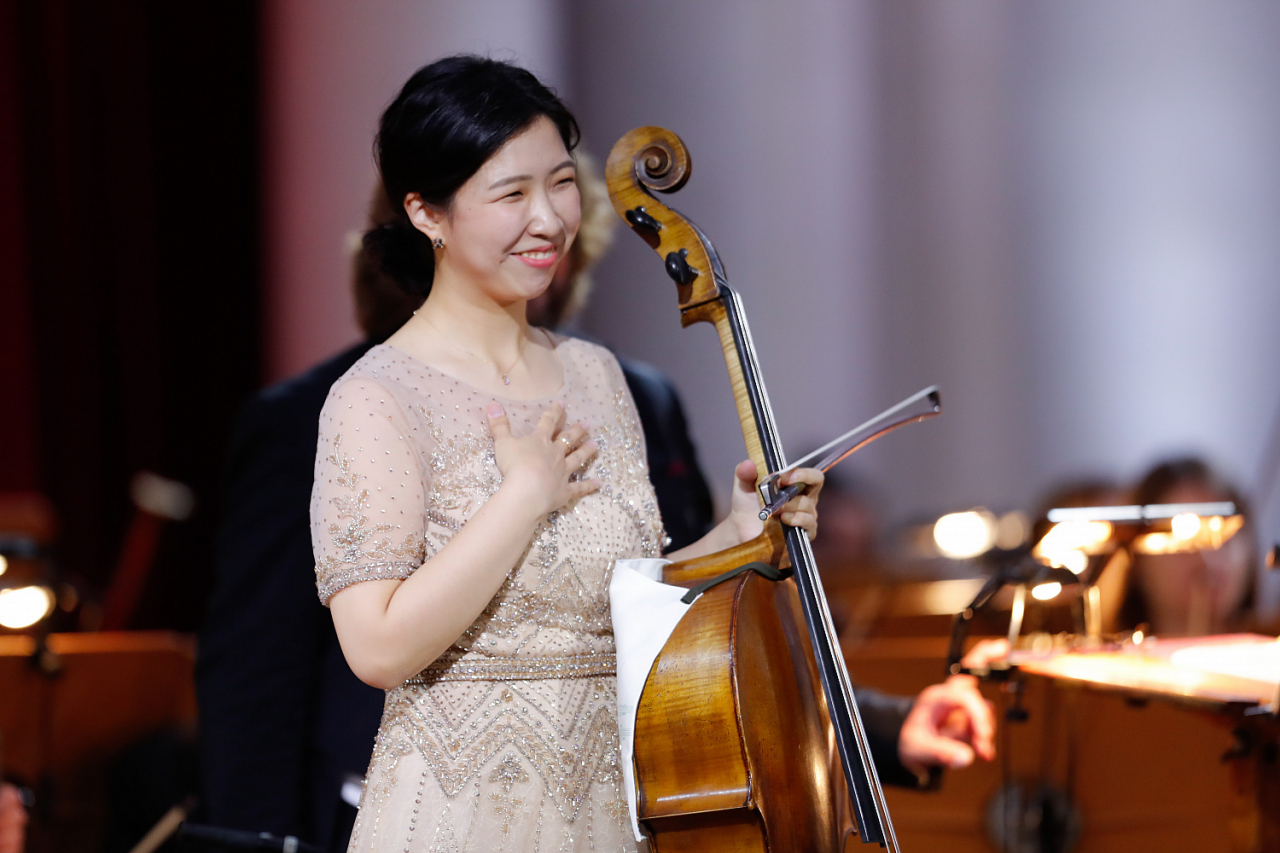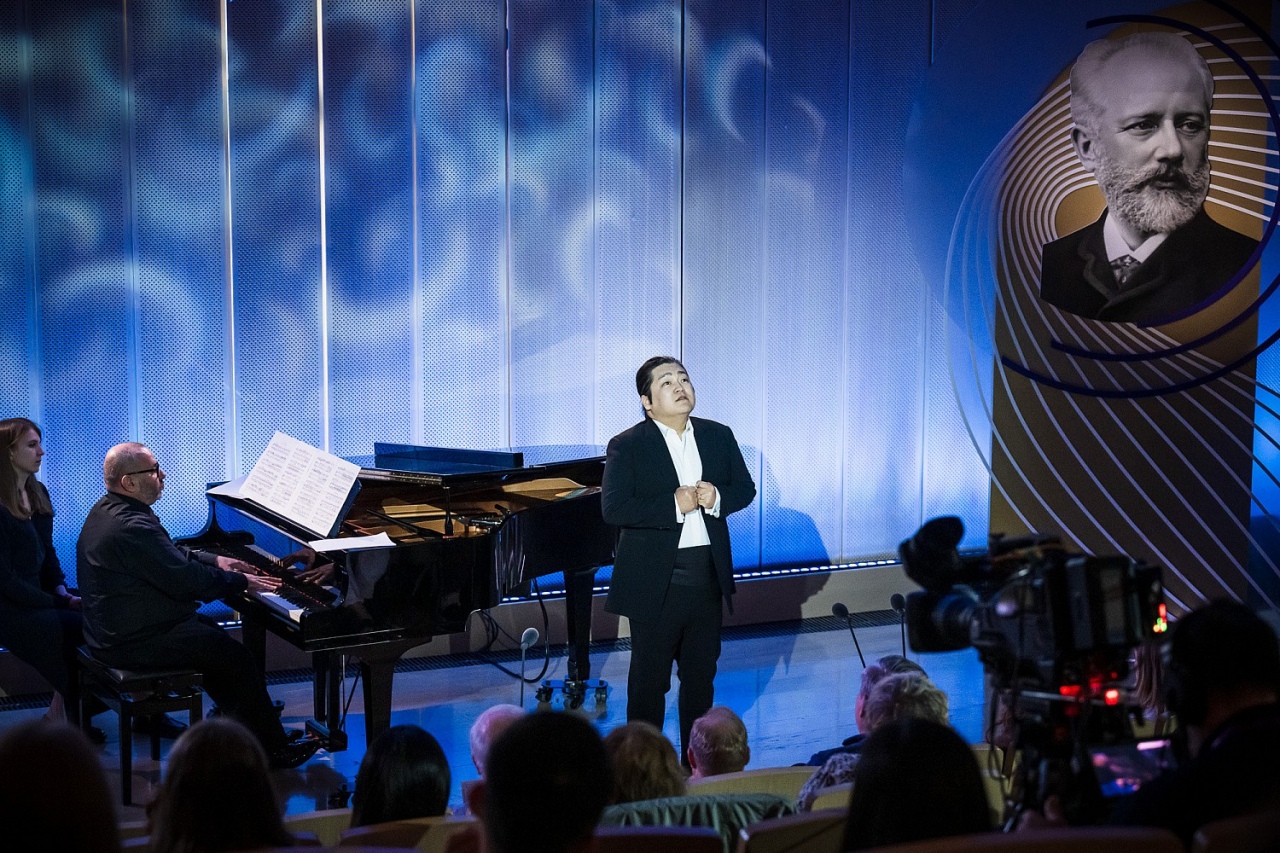 |
South Korean violinist Kim Gye-hee, who received the first prize in the violin category of the International Tchaikovsky Competition, performs during the third round of the competition on Tuesday. (International Tchaikovsky Competition) |
A total of eight South Korean classical musicians have received awards, including three first prizes, at this year’s International Tchaikovsky Competition, a once bustling but now diminished event amid Russia's invasion of Ukraine.
The International Tchaikovsky Competition is held every four years in both Moscow and St. Petersburg, Russia for pianists, violinists, cellists, woodwind players and brace performers aged 16-32 and singers aged 19-32.
According to the competition's website, violinist Kim Gye-hee and cellist Lee Young-eun won gold medals in their respective fields, both becoming the Korean laureates in the competition's instrumental music categories. For violin, Kim was the only Korean participant.
Two South Koreans were honored in the voice category. While tenor Son Ji-hoon received the gold prize, Jeong In-ho won the second prize, which he shared with Russia’s Maskim Lisiin.
Flutist Kim Ye-sung was among three co-winners of the third prize in the specialty woodwind category, which was added to the competition in 2019, along with the brass discipline.
In the cello discipline, in which people of only two nationalities -- South Korea and Russia -- shared a total of six awards, Park Sang-hyeong received the bronze medal while Lee Dong-yeol placed fifth.
Both Park and Lee studied at the Korea National University of Arts, a top university for arts disciplines in the country, under Lee Kang-ho, dean of the instrumental department.
"As we have witnessed in the past that exchanges in arts and sports continued even during the Cold War and various conflicts, we concluded the practice should be upheld," Lee told The Korea Herald on Friday. "Besides, for cello, there are not many competitions for students to participate in," Lee noted, adding that the biggest concern for the Tchaikovsky competition was uncertainty over safety in Russia.
 |
South Korean cellist Lee Young-eun, who received the first prize in the cello category at the International Tchaikovsky Competition, smiles after performing in the third round of the competition on Wednesday. (International Tchaikovsky Competition) |
The winners were among 16 South Korean musicians who joined the quadrennial event, which saw a total of 236 contestants from 23 countries, selected from 742 applicants. In 2019, the competition received a record 954 applications.
Out of the 236 musicians, 128 were from Russia this year and the number of participants from China surged from nine in the previous competition to 48 this year.
Founded in 1958, the Tchaikovsky competition has helped many musicians launch their international careers including Korean conductor Chung Myung-whun, who won the second prize in piano in 1974. The competition has drawn many South Korean participants over the past two decades. In 2011, South Koreans made a splash at the competition, with now celebrated pianists Son Yeol-eom and Cho Seong-jin taking home the second and third prizes, respectively. In addition, soprano Seo Sun-young and bass Park Jong-min were named the first prize winners in the voice category, while violinist Lee Ji-hye was also named the third prize winner.
The year's edition was the first since the World Federation of International Music Competitions in April 2022 voted to exclude the Russian government-funded competition from the federation in the face of Russia’s invasion of Ukraine.
 |
South Korean tenor Son Ji-hoon, who received the first prize in the category of voice at the International Tchaikovsky Competition, sings during the second round of the competition on Sunday. (International Tchaikovsky Competition) |
Following the decision of the World Federation of International Music Competitions, South Korea’s Military Manpower Administration has excluded the Tchaikovsky competition from the list of competitions whose winners are to be granted an exemption from compulsory military service. The decision has been in effect since Jan. 1.






![[Lee Byung-jong] The perils of political leadership](http://res.heraldm.com/phpwas/restmb_idxmake.php?idx=644&simg=/content/image/2024/12/19/20241219050082_0.jpg)
